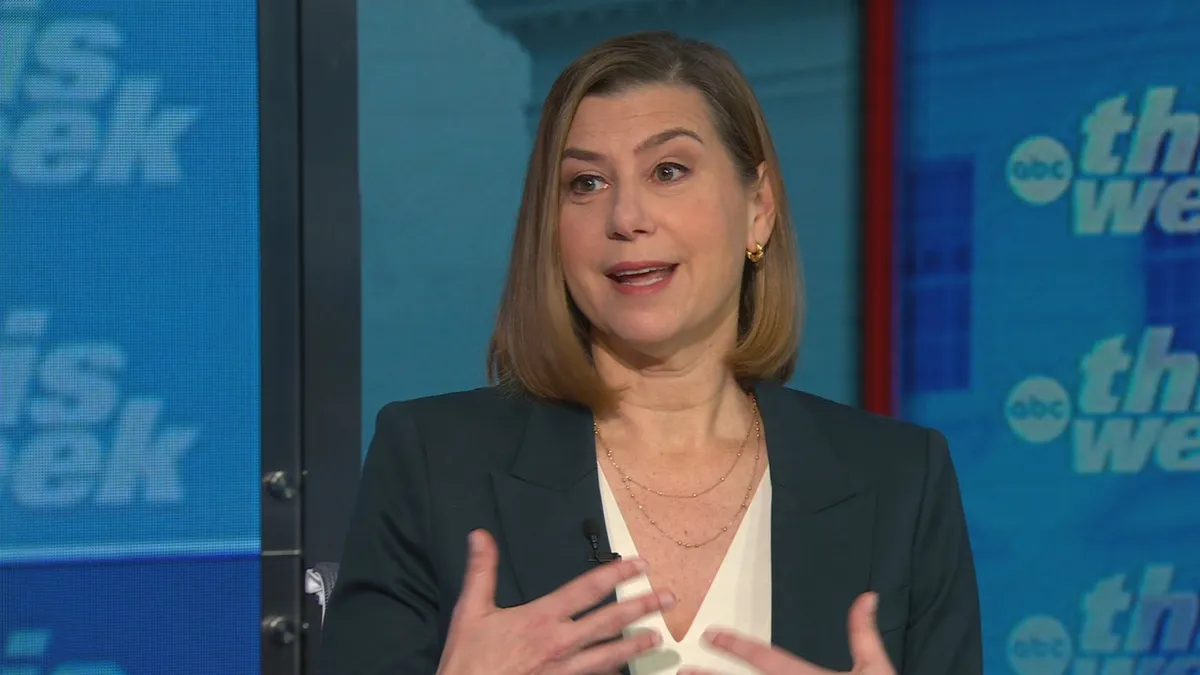
President Donald Trump's recent comments accusing Democratic lawmakers of engaging in seditious behavior have ignited widespread criticism across party lines. This controversy arose following the release of a video encouraging military personnel to refuse illegal orders. Senator Elissa Slotkin, who is one of the six Democrats featured in the video, addressed the issue during an interview with ABC News' This Week co-anchor Martha Raddatz.
During the interview, Slotkin stated that Trump's attacks, which included ominous threats of death for sedition, serve as a tool of fear aimed at silencing dissent. "He's trying to get us to shut up because he doesn't want to be talking about this," she remarked. Slotkin further emphasized that Trump's ongoing rhetoric is likely intended to distract from significant stories from the previous week, such as the release of the Jeffrey Epstein files and ongoing economic concerns.
In a rare moment of bipartisan agreement, Republican Representative Michael McCaul also sought to distance himself from Trump's inflammatory remarks. He expressed his disapproval by stating, "I don't speak for the president in terms of hanging members of Congress." McCaul added that he believes it is essential to "tone down the rhetoric" surrounding these accusations.
The White House and Trump have denied any intention of threatening death toward the lawmakers, many of whom have military or national security backgrounds. Despite these denials, the lawmakers have reported receiving a surge of threats, prompting them to enhance their security measures. On Saturday night, Trump referred to these lawmakers as "traitors," asserting that they "SHOULD BE IN JAIL RIGHT NOW" instead of defending themselves in the media.
Slotkin explained that the lawmakers released the video in response to concerns expressed by military officers. "We've had report after report of legal officers, JAG officers, coming forward and saying, 'Look, I push back on this. I'm not sure that this is legal,'" she noted. She emphasized that illegal orders do exist, a principle enshrined in the Uniform Code of Military Justice. Slotkin referenced historical precedents, stating, "Going back to Nuremberg, there are such things as illegal orders." She continued, "If the president is concerned about it, then he should stay deeply within the law."
When pressed on whether illegal orders had been issued by the president, Slotkin replied, "To my knowledge, I am not aware of things that are illegal, but certainly there are some legal gymnastics that are going on with these Caribbean strikes and everything related to Venezuela." In contrast, McCaul defended the legality of actions regarding Venezuela, asserting that the orders in question are not illegal. "These orders that they're talking about, in my judgment, are not illegal orders to follow," he stated, arguing that they are rooted in Article 2 self-defense of the Constitution, aimed at stopping threats like drug trafficking that endanger American lives.
Slotkin's primary concern revolves around the potential use of the U.S. military on American soil. "My primary concern is the use of U.S. military on American shores, in our cities and in our streets," she expressed. Referring to recent court decisions that overturned military deployment in urban areas, she voiced her apprehension about the potential for conflicts between law enforcement and civilians. "When you look at these videos coming out of places like Chicago, it makes me incredibly nervous that we're about to see people in law enforcement, people in uniformed military, get nervous, get stressed, and shoot at American civilians," she cautioned.
Raddatz challenged Slotkin about the possibility of conveying the message in the video without implying illegal orders from the president. Slotkin clarified that the intent was to provide guidance to service members: "We wanted to speak directly to the volumes of people who had come to us on this." She reiterated the importance of understanding the process: "Go to your JAG officer, ask them for explanation, for top cover, for their view on things."
The ongoing tensions between President Trump and Democratic lawmakers highlight significant concerns about the legality of military orders and the potential impact on American civil liberties. As both parties navigate this contentious landscape, the dialogue surrounding military engagement and legal authority continues to evolve.